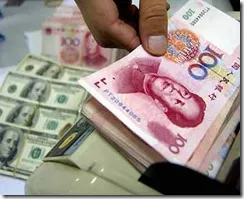
Dim Sum demand lessen benefit from buying yuan in HK
China’s shift toward policies that support economic growth spurs demand for Dim Sum bonds. This in turn reduce the benefits from buying yuan in Hong Kong.
The discount fell to 0.2 percent over the weekend from a record 1.9 percent on Sept. 23, according to data compiled by Bloomberg.
“As the China bears fade away, offshore yuan will soon return to a premium versus the onshore rate,” said Nathan Chow, a Hong Kong-based economist at DBS Bank (Hong Kong) Ltd., a unit of Singapore’s biggest lender. “China’s economy is fundamentally strong. Demand for yuan continues to outstrip supply in the offshore market.”
Premier Wen Jiabao said last month that policies will be “fine tuned” to protect Asia’s biggest economy against global turmoil, spurring speculation two years of monetary tightening will start to be unwound. The government has since announced tax cuts for companies as well as increased credit for smaller businesses, while the central bank lowered its one-year bill yield for the first time since 2008 and injected 163 billion yuan or US$26 billion of funds into the financial system.
“With inflation easing lately, they have some room to use monetary policy to help the economy,” said Hitoshi Ueda, senior fund manager of the fixed-income investment group at Sumitomo Mitsui Asset Management Co. in Tokyo. “That is supportive of growth and will lead to a stable speed of yuan appreciation. We aim to benefit from that strengthening.”
The rally in the securities may slow as Europe’s debt crisis hurts exports, deterring policy makers from allowing yuan gains, said Frances Cheung, a senior strategist at Credit Agricole CIB in Hong Kong. Overseas sales rose 15.9 percent in October from a year earlier, the least since February, trade data showed yesterday.
“Dim Sum bonds’ performance depends on investors’ expectations of yuan appreciation and as you can see the China exports numbers weren’t too great,” said Frances Cheung, a senior strategist at Credit Agricole CIB in Hong Kong.
The yuan has gained 3.9 percent versus the dollar this year, the best performance among 25 emerging-market currencies tracked by Bloomberg.
Demand for yuan is picking up as China promotes the currency’s use in international trade and investment.
Dim Sum bonds were little changed in the last four days, after advancing 1.25 percent in the previous four weeks, based on the Deutsche Bank Offshore Renminbi Bond Index. China’s economic growth will be above 9 percent this year, Chen Xiwen, director of the State Council’s Office of Central Rural Work Leading Group, said last week.
“Dim Sum bonds are attractive at current valuations as market fundamentals are intact,” said Becky Liu, a Hong Kong- based credit strategist at HSBC Holdings Plc, the top underwriter of Dim Sum bonds this year. Data suggests the economy is “better than expected and the government is willing to adopt micro fine-tuning measures,” she said.
For the source of this story, click here.



















 Advertise
Advertise









